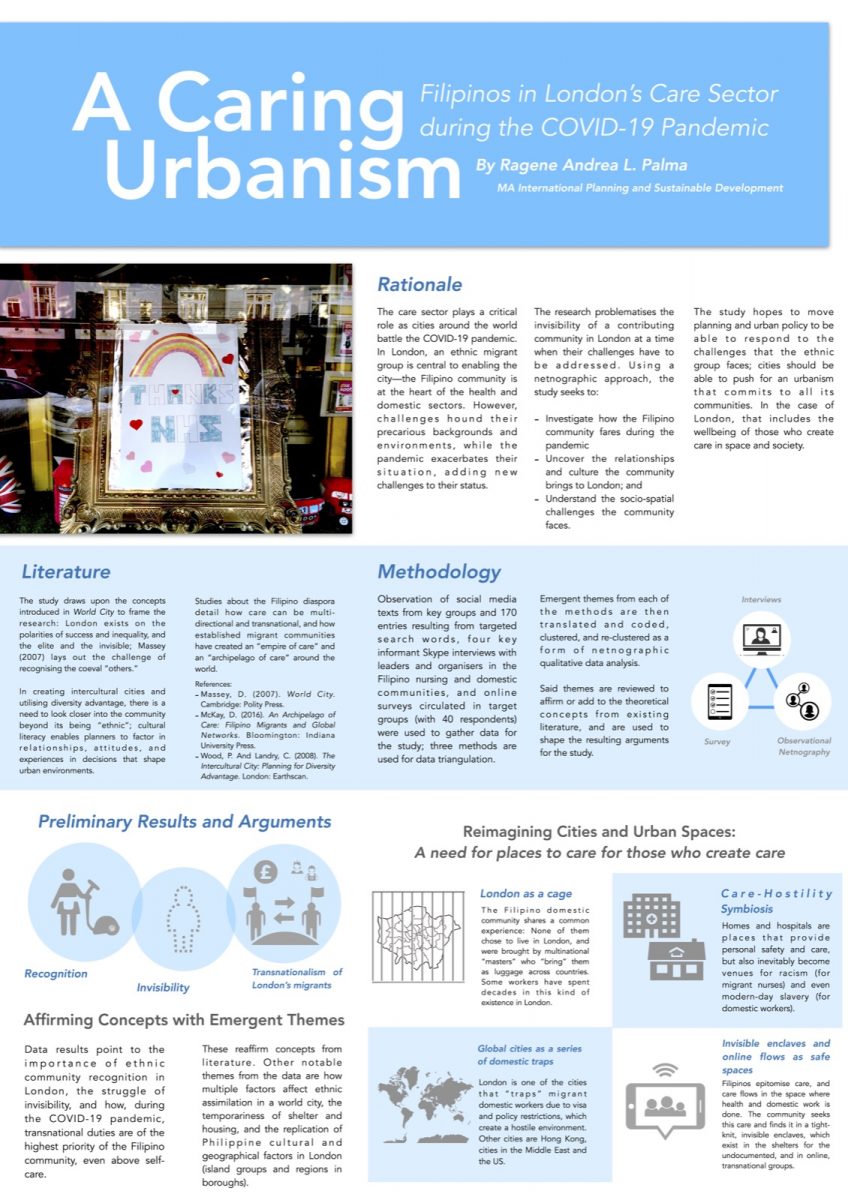Embracing the ‘Other’ through a City that Cares: Recognising impacts of the COVID-19 pandemic on London’s Filipino health and care community
This dissertation explores the condition of the London’s Filipino health and care community during the COVID-19 pandemic. Drawing on concepts from the world city, particularly, the call for coevalness in London’s coproduction by migrant workers, this research takes interest in how a certain group of Londoners are not equally visible as other urban dwellers. The Filipino community, which has a critical role in the city through their presence in the health and care sectors, is, compared to other ethnic groups, much less discussed in the understanding of the urban.
This research problematises their invisibility, and uses it as a hinge point to investigate how the community copes in the pandemic, as well as how the community fosters care among its members and the spaces they move in. Using in-depth interviews, surveys, and investigative netnography for empirical basis, this research situates the Filipino community in contemporary London, but also reveals longstanding issues—othering, racism, even abuse, and physical proximity in work and homes have exacerbated how they cope with COVID-19.
This research reimagines London: the city has a symbiotic, cyclical duality of hostility and care, and, from the eyes of the Filipino ‘other’, the city has become a cage. This research yields spatial concepts, such as how Filipino relations and virtue ethics create ‘spaces of care’, which, in turn, can be used to rethink how London (and other cities) can become ‘cities of care.’











